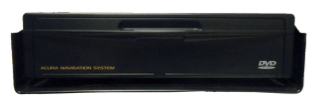Set the scene. A stock 1991 MT with door speakers already replaced. When I turn the radio on, everything lights up and the radio functions such as Seek etc work. The antenna goes up and down like a charm. But, and there is always a but, No Sound, at all. The volume knob elicits nothing.
Last Fall, before storage, after turning the radio on, it sometimes took awhile before I got sound.
Any ideas about what might be the problem?
Last Fall, before storage, after turning the radio on, it sometimes took awhile before I got sound.
Any ideas about what might be the problem?










